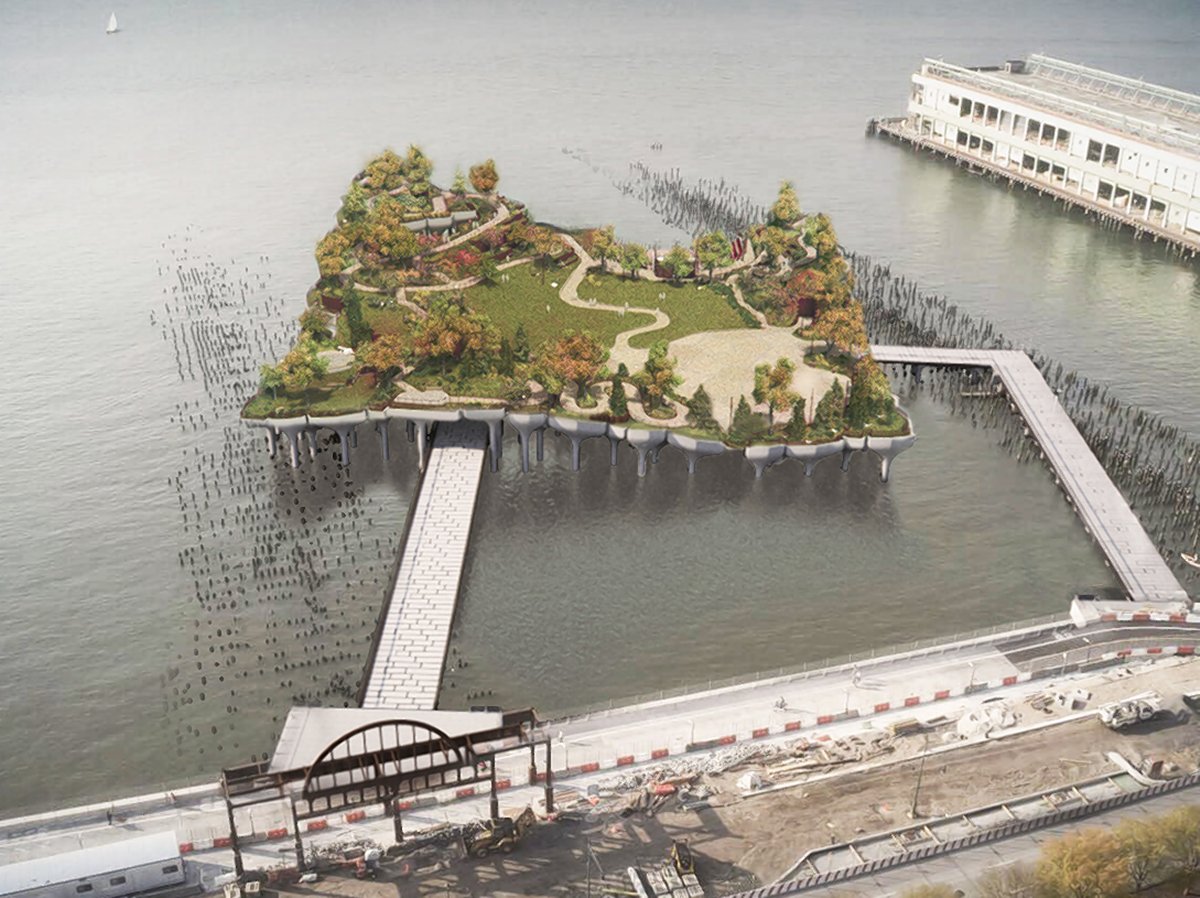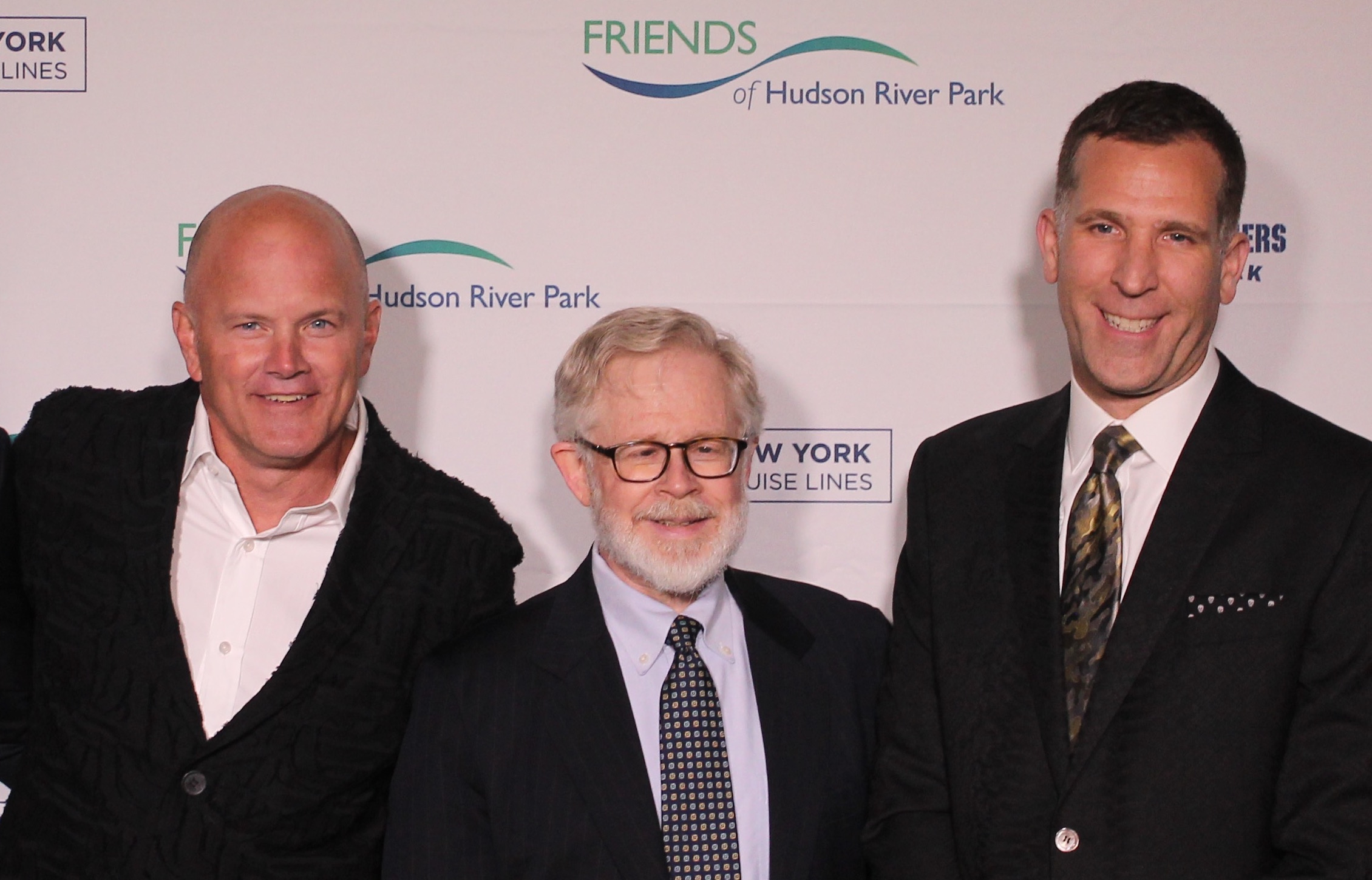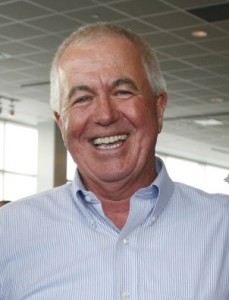
BY TOM FOX | Re “Thanks, ‘Crusty’ club” and “Row, row your selfish boat” (letters, by Michael Novogratz, March 30 and April 12):
I think Mr. Michael Novogratz misunderstands our objections to the Pier55 project. It’s basically a theater that could be built anywhere, just not in a maritime sanctuary. The absence of meaningful public participation in the planning was a significant flaw in the project. Because the Hudson River Park Trust failed to invite public participation from the beginning of the Pier55 project — as it was established to do — the project suffered from mistaken assumptions and failed to adequately assess alternative locations, ranging from Gansevoort Peninsula to Pier 76.
A little historical perspective might be helpful. To avoid the controversy and delays that defeated Westway — the last top-down scheme that was planned to fill in this portion of the Hudson River — we drafted the legislation that created the Hudson River Park Trust. That founding legislation required public participation in the planning, design and management of the new park. Rather than being presented with a completed plan to “review,” the public would participate in the planning of the park.
Park professionals consider public participation a key element in the planning process. A broad spectrum of residents is involved early, and continuously, in the planning process, which incorporates public concerns, needs and values into public decision-making. This kind of process increases transparency and public confidence in public agencies and encourages the exchange of information, ideas and values between citizens and parks planning staff.

Public participation can be cumbersome but it’s well worth the effort. The process ensures all the relevant issues are addressed in an open and constructive manner before they become controversies. It’s understandable that Mr. Novogratz is unaware of what meaningful public participation in park planning is or why it’s important. Unfortunately, there are no park professionals in leadership roles at the Trust to explain that to him.
In planning Pier55, a wealthy donor pledged the funding needed to build and operate a major new project in the park. Instead of working within the proposed use and physical parameters set for the reconstruction of Pier 54 in the park’s General Project Plan and the Estuarine Sanctuary Plan, the Trust met privately with the donors and their consultants for two years and then acted as a developer.
With funding provided by Mr. Novogratz, as the chairperson of the Friends of Hudson River Park, in 2013 the Trust hired a lobbyist to help change the Hudson River Park Act in the closing hours of the legislative session by obfuscating its intentions at Pier55 — but the Trust and Friends knew perfectly well what they planned to do. They then presented a completed plan, consistent with the new legislative changes, to Community Board 2 at several meetings. However, it was not as enthusiastically received as Mr. Novogratz would have us believe and there were concerns and questions voiced about the project.

Acting as a developer, the Trust tried to minimize public participation by scheduling the public comment period for the project over the Thanksgiving, Chanukah, Christmas and New Year’s holidays, while most people were distracted with personal responsibilities or out of town. The tactic was transparent and the Trust was forced to extend the public comment period.
Questions raised about the project’s location, configuration, change of use and the prohibition against non-water-dependent uses in this estuarine sanctuary were dismissed. Ignoring opposing views rather than attempting to address them is hubris reminiscent of the 1970s and ’80s and not the way public planning is done in America these days.
The Hudson River Park is public space — it belongs to all of us, not just a few government bureaucrats or wealthy donors. If thousands of people hadn’t fought for decades to protect this river from exploitation, and open it to public use, there would be no Hudson River Park.
The park and the planning process should not be modified to accommodate the wishes of the wealthy. If donors want to contribute to building the park and participate in an open and meaningful public planning process, that’s great. If not, the park can be financed as was initially envisioned with the revenue it generates for our city and region in increased real estate taxes, tourism and enhanced public health. The park has generated billions of dollars in new real estate taxes in adjacent neighborhoods and this valuable public asset should be protected not exploited.
Slandering my fellow plaintiff Mr. Robert Buchanan for being a conscientious steward of this valuable marine estuary may help salve Mr. Novogratz’s wounds, but it’s not going to move this project forward, or secure the future design, programming and management of the park.
Mr. Novogratz should stop whining about opponents and listen. Most importantly, he should insist that the Trust hire qualified park professionals in leadership positions, secure adequate public funding for the full 5-mile-long Hudson River Park’s completion and maintenance and ensure the meaningful public participation that created the Trust, and the General Project Plan for the park in all future projects. That way he could make a meaningful contribution to the public good.
Fox was a citizen appointee to the West Side Task Force in 1986, and the West Side Waterfront Panel from 1988-’90; the first president of the Hudson River Park Conservancy (the predecessor to the Hudson River Park Trust that completed the Hudson River Park’s concept and financial plan) from 1992-’95; a member of the Hudson River Park Alliance (which supported the Hudson River Park’s founding legislation) from 1996-’98; and a founding board member of Friends of Hudson River Park. Most recently, he was a plaintiff with his fellow City Club of New York member Robert Buchanan in the successful federal lawsuit against the Pier55 plan, which led Judge Lorna Schofield last month to nullify the U.S. Army Corps of Engineers’ permit for the project. Schofield ruled that the Corps had violated the Clean Water Act by incorrectly ruling that the “basic use” of Pier55 — performances and recreation — was water dependent.
A six-minute video on Fox tells the story of how he became one of New York City’s leading waterfront park advocates.



































